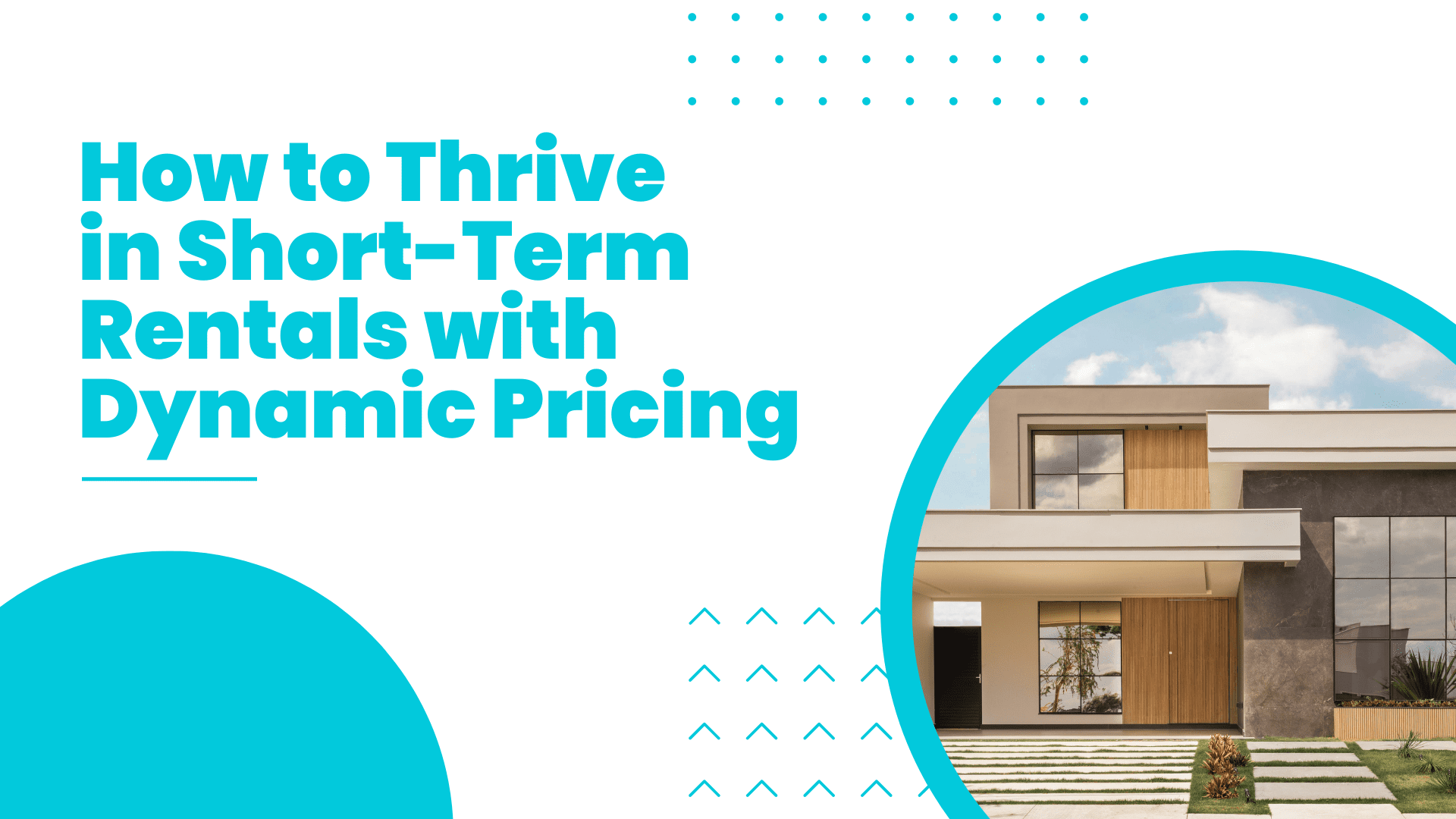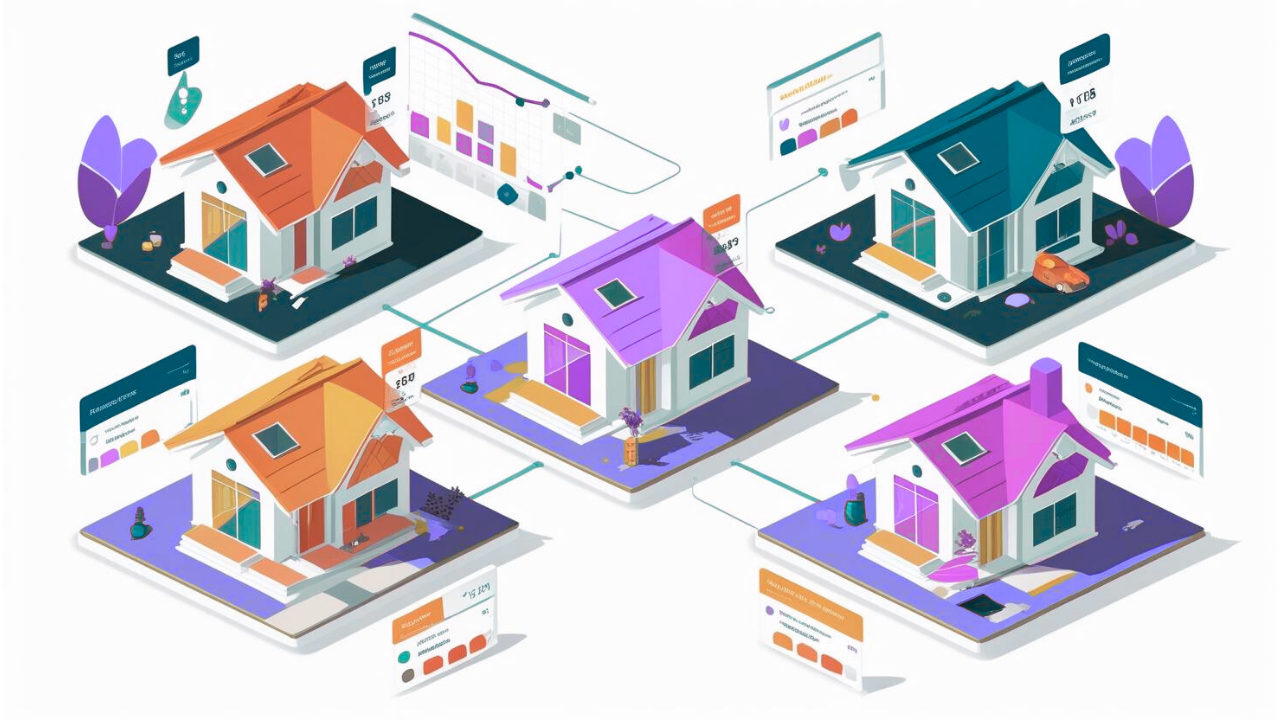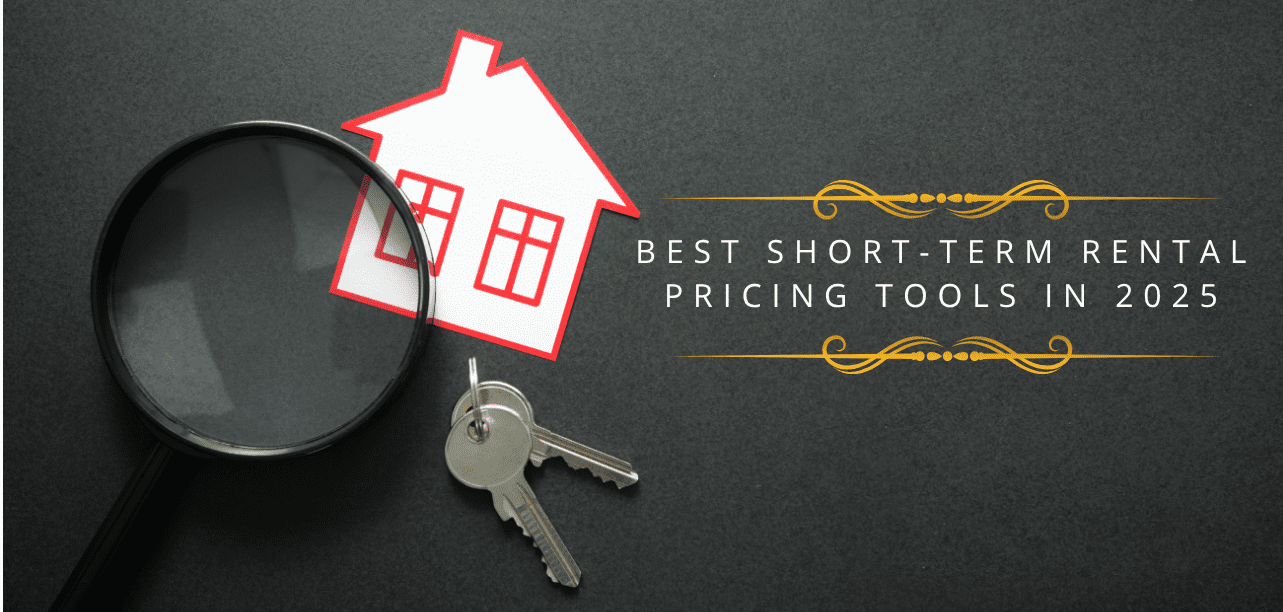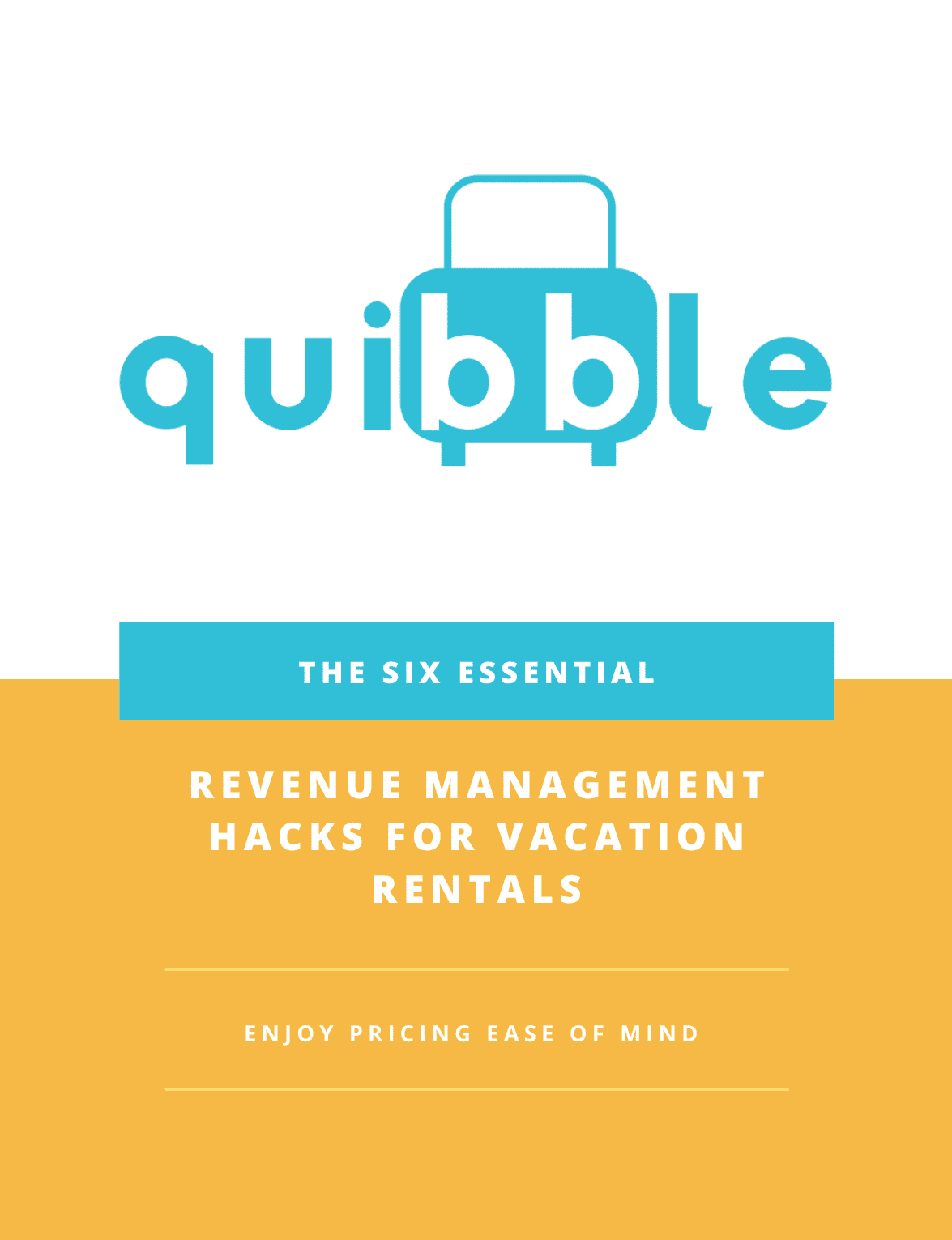In the ever-evolving world of short-term rentals, staying ahead of the competition is essential for success. One strategy that can significantly impact your rental revenue is dynamic pricing. By adjusting your prices based on demand and market conditions, you can optimize your profits and attract more guests. In this blog post, we will explore the concept of dynamic pricing and provide valuable tips to help you thrive in the short-term rental market.
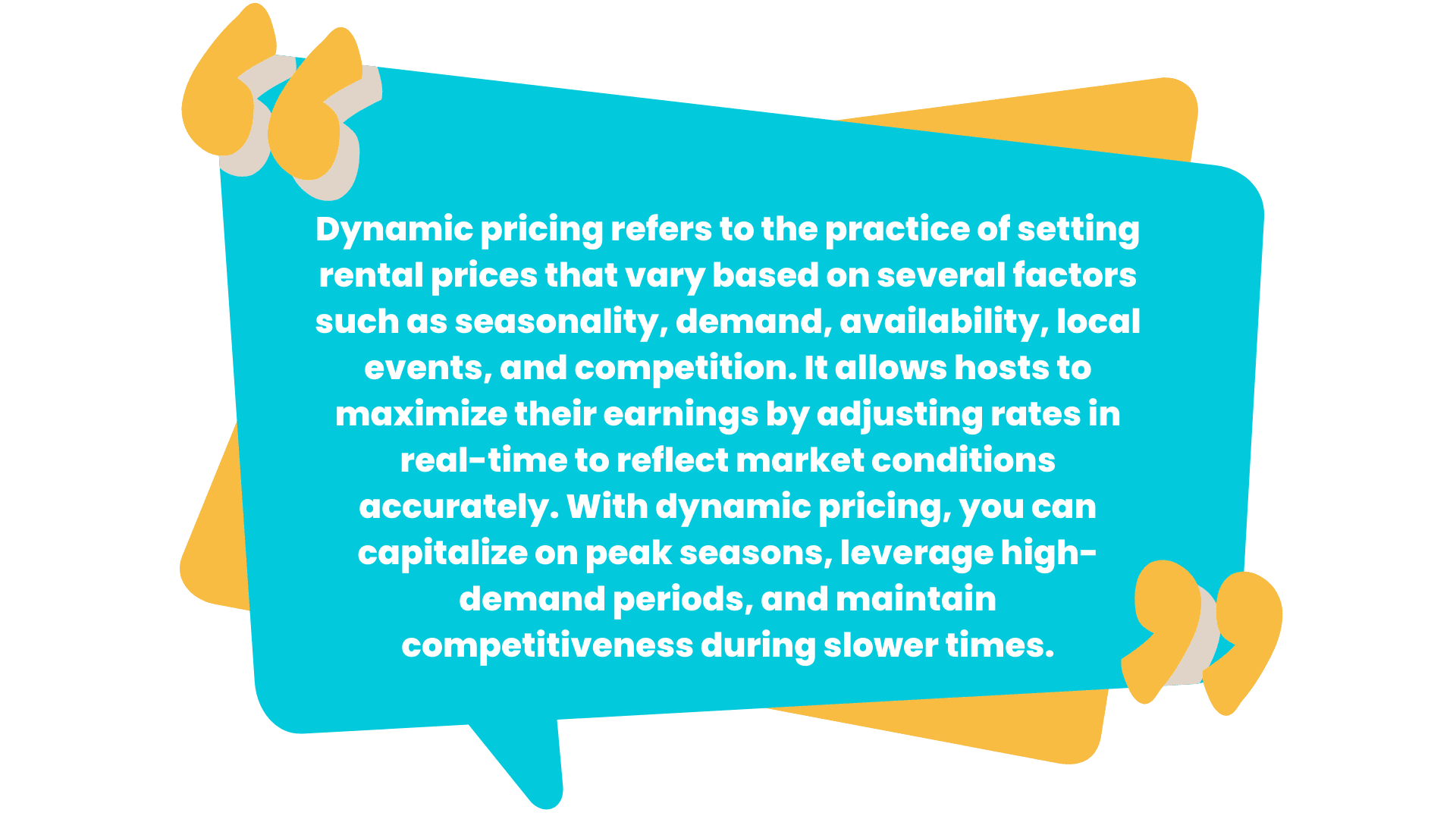
Tips for Implementing Dynamic Pricing
Keep a close eye on market trends and patterns. Identify peak seasons, local events, and other factors that impact demand. This information will help you determine the ideal pricing strategy for different times of the year.
To effectively implement dynamic pricing, consider using a reputable pricing optimization tool or service. These tools analyze vast amounts of data, including market demand, competitor prices, and historical booking patterns, to suggest optimal pricing for your rentals.
Calculate your fixed and variable costs associated with your short-term rental business. These costs should be factored into your pricing strategy to ensure profitability. Dynamic pricing should not only consider demand but also cover your expenses.
Stay informed about the pricing strategies of other rental hosts in your area. Adjust your rates accordingly to remain competitive. However, be cautious not to undercut your prices too much, as this may devalue your rental and impact your revenue.
Different seasons can bring varying demand levels. Adjust your prices accordingly to maximize profitability. During peak seasons, you can increase rates, while off-peak periods may require more competitive pricing to attract guests.
To streamline your dynamic pricing strategy and ensure optimal results, consider utilizing our comprehensive dynamic pricing service, Quibble. We are a leading provider of advanced pricing solutions for short-term rental hosts. With Quibble, you gain access to cutting-edge technology that analyzes market data in real-time, taking into account various factors influencing demand. Their intelligent algorithms provide accurate price recommendations, enabling you to increase revenue and maximize occupancy rates.
1. Real-Time Market Insights
Quibble’s advanced tools constantly monitor market conditions, competitor prices, and demand patterns to provide you with up-to-date insights. Stay ahead of the competition with accurate pricing recommendations.
2. Customized Pricing Strategies
Quibble tailors its pricing recommendations to your specific property, location, and market conditions. Their algorithms consider a range of factors to create a unique pricing strategy that optimizes your rental revenue.
3. Automation and Ease of Use
Quibble’s platform integrates seamlessly with major short-term rental platforms, making it easy to implement and manage your dynamic pricing strategy. Spend less time manually adjusting prices and more time focusing on guest experiences.
4. Revenue Maximization
By leveraging Quibble’s dynamic pricing services, you can unlock the full earning potential of your short-term rental. Increase your revenue and profitability through optimized pricing.
💎 Conclusion
Dynamic pricing is a powerful tool for short-term rental hosts looking to thrive in a competitive market. By understanding market trends, utilizing technology, and implementing an effective pricing strategy, you can maximize your rental revenue and attract more guests. Quibble’s dynamic pricing services offer an efficient and intelligent solution to help you achieve these goals. Visit https://quibblerm.com/ today to learn more about how Quibble can assist you in optimizing your pricing strategy and taking your short-term rental business to new heights.

